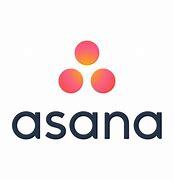The Project Management Professional (PMP) certification is a pinnacle in project management credentials, widely acknowledged and respected across industries worldwide. Offered by the Project Management Institute (PMI), this certification validates a professional’s ability to effectively lead and manage projects, adhering to globally recognized standards and best practices. Earning the PMP certification offers numerous advantages:
- Market Appeal: The PMP certification remains a gold standard in project management, enhancing a professional’s marketability and credibility in the field.
- Return on Investment: Investing in PMP certification often yields substantial returns, with certified professionals typically commanding higher salaries and accessing greater career advancement opportunities.
- Skill Validation: PMP certification validates a professional’s proficiency in essential project management areas, including initiating, planning, executing, monitoring and controlling, and closing projects.
- Strategic Alignment: PMP-certified professionals excel in aligning project objectives with strategic organizational goals, managing stakeholder expectations, and navigating complex project challenges effectively.

Cost Breakdown
- Exam Fee: The exam fee for the PMP certification is $555 if you’re a non-PMI member. This fee is paid directly to the Project Management Institute (PMI) when you register for the exam.
- Training Programs: To prepare for the PMP exam, many candidates opt for PMP certification training programs. These programs can cost anywhere between $50 and $3500. Investing in quality training significantly increases your chances of passing the exam.
- PMI Membership: While not mandatory, becoming a PMI member offers benefits such as access to additional study resources, networking opportunities, and discounts on exam fees. PMI membership fees vary based on location and membership type. Currently, the annual membership fee for PMI is $129. The standard non-member fee for the PMP certification is $555, but PMI members pay a discounted fee of $284.
- Study Materials: You’ll need study materials such as PMP exam prep books, practice tests, and online resources. The cost of these materials can vary, but it’s essential to allocate a budget for them. Depending on your learning style and preferences, you might consider other resources like PMP study guides, workshops, or boot camps. These can add to the overall cost.
In summary, the total cost of obtaining the PMP certification typically ranges from $750 to $3,000, considering the exam fee, training expenses, study materials, and potential additional resources.

Obtaining the PMP Certification
Professionals follow a structured process to obtain the PMP certification:
- Meet the PMP Certification Requirements: To be eligible for the PMP exam, you need to fulfill the following requirements:
- Option 1: If you have a four-year degree, you’ll need:
– 35 hours of project management training (coursework specifically focused on project management).
– 36 months (3 years) of experience leading projects.
- Option 2: If you have a high-school diploma or associate degree, you’ll need:
– 35 hours of project management training (or a Certified Associate in Project Management (CAPM)® certification).
– 60 months (5 years) of experience leading projects.
2. Apply for the PMP Exam: Create an account with the Project Management Institute (PMI) and start your application for the PMP exam.
3. Prepare for the Exam: Studying for the PMP exam requires planning and determination. Allocate at least a few months to prepare. Utilize various resources such as courses, books, and practice exams to enhance your understanding.
4. Take the PMP Exam: The PMP exam consists of 180 multiple-choice questions based on the Project Management Body of Knowledge (PMBOK) guide. Be aware that the exam format was updated in 2021, so ensure your study materials reflect these changes.
5. Maintain Your Certification: The PMP certification is valid for three years. To renew it, earn 60 professional development units (PDUs) through accepted professional development activities during this period.
In summary, the PMP certification represents more than just a credential – it’s a pathway to professional advancement and recognition in the field of project management. Whether you’re aiming to kickstart your career or aiming for new heights, achieving PMP certification can be the defining step toward your goals. Learn more and apply through the Project Management Institute (PMI) website today.









